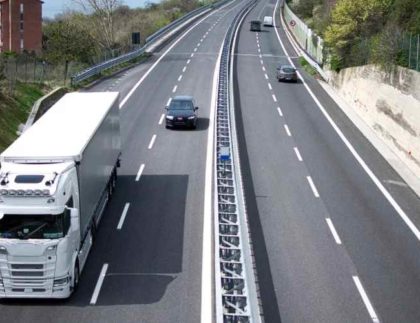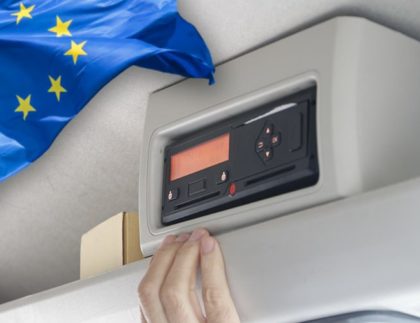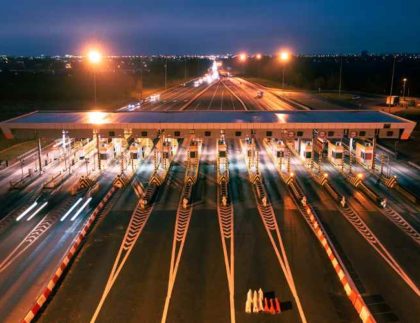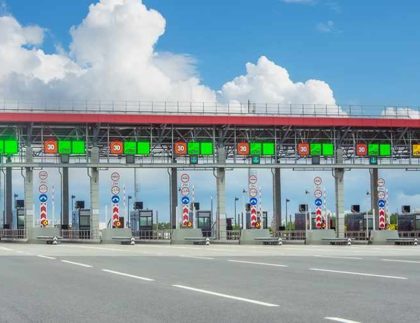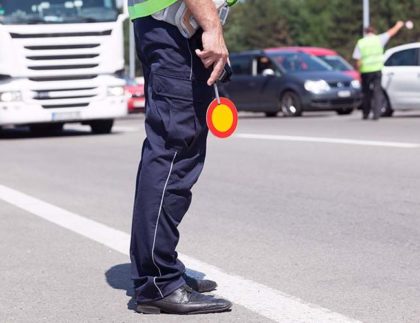

Europe’s first information session organized by ELA (European Labor Authority) for Poland, the Czech Republic, Slovakia and Hungary is now over. Sessions took place on February 7–8 in Warsaw and were held both for the inspection service representatives present on the spot, who had the opportunity to meet with the representatives of ELA, CORTE and the European Commission, as well as in an online format for a group of more than 90 participants, including Inelo’s representatives, from four countries.
The most important objective of the meetings was to present and discuss the TRACE 2 project clarifying the mobility package, which is largely focused on the issues concerning the driving and resting times and the posting of drivers. During the meeting, many valuable questions were asked, to which the assembled participants received practical answers that clarified even the most intricate topics. Among other things, the issue of inspecting the regular resting time was discussed, pointing out that an inspector, in order to check it, cannot wake up or otherwise interrupt a driver’s rest and must wait until they finish resting and only then can the inspector start the inspection to check whether the driver slept in the hotel or in the car (which is forbidden). Moreover, the inspector is not allowed to directly request proof of a hotel stay in the form of a bill, which unfortunately still happens in the territory of France, for example. In such a situation, the only thing the driver or carrier can do is bring the case to a court and fight for justice there. This fact was noted by ELA, whose representatives promised to take a closer look at this practice with a view to future harmonization of the enforcement of laws. The importance of the issue was also noticed by CORTE’s delegates who announced a discussion of the topic at the next meeting in March.
Should the loading and unloading be entered in the tachograph?
CORTE’s representative also disclosed that due to the lack of penalties, the driver is not required to enter loading and unloading in the tachograph. However, this contradicts the European Commission’s opinion which says that if there is such functionality in the tachograph and it is stipulated in the laws, the driver is obliged to use it. However, in our opinion it is a matter of time and the upcoming inspections will verify both theses.
Inspection of the driver returning to the country
The session also addressed the issue of inspecting the driver’s return to the country, stating that the inspection should not take place on the road, but on the company’s premises, since the inspection held outside the company’s seat can only cover 28 days (plus the current day) and this scope is often insufficient for this. The situation may change if, as announced, the period is extended to 56 days (plus the current day).
Posting of drivers – dedicated solutions for carriers
The last topic to be discussed was the posting of drivers, which causes many problems for inspectors due to the need for manual control of data. Transport companies are in a much better situation as they have at their disposal the 4Trans/TachoScan program (change according to the news) with a foreign payroll module (foreign countries), with the help of which they can easily calculate all surcharges resulting from the posting of drivers. Katarzyna Kuske of the European Commission stressed that such solutions already exist and if inspectors also had such program, it would greatly facilitate and accelerate their work.
One should note that carriers are still required to use the IMI system for submitting declarations. However, the topic of the SIPSI portal, which in France is used for declaring bus drivers, truck drivers, but those working through employment agencies, and drivers of third-country companies, was raised with a view to harmonizing requirements in Europe as soon as possible so that a carrier can enter declarations in only one system.
It was a very interesting two-day meeting which provided us with a lot of new information that we can share with our Clients and use to create the best solutions. We are all the more pleased that we were recognized by receiving an invitation to an information session organized by the European Labor Office and that our program for calculating minimum wages was noticed by the European Commission.

